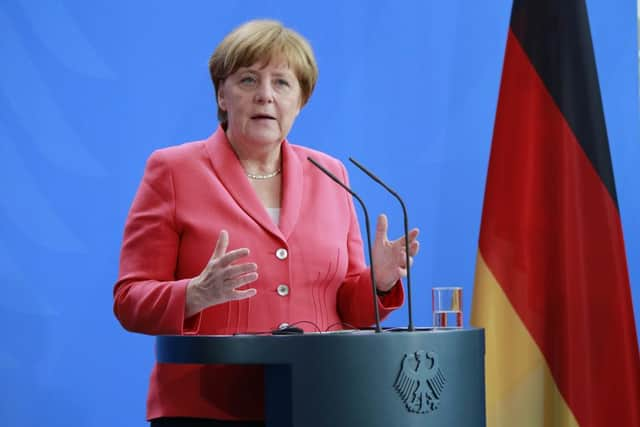Germany in lockdown: why country has been put under new national restrictions before Christmas - and rules explained
Germany faces a new lockdown which will see strict rules implemented over the Christmas season.
The number of deaths and cases from Covid-19 continue to rise exponentially in the country, with the latest figures showing 20,200 more infections and 321 further deaths.
Advertisement
Hide AdAdvertisement
Hide AdThe restrictions will commence on 16 December and run until 10 January.


This is why Germany has been placed under lockdown - and what the rules mean for businesses and workers.
Why has Germany been placed in lockdown?
German chancellor Angela Merkel announced the decision after meeting with the leaders of the 16 federal states on 13 December, citing “an urgent need to take action”.
The country has been under a “lockdown lite” since early November, as bars and restaurants have been closed while shops and schools have continued to operate.
However, despite a robust test and trace system in place, the softer approach has not slowed down the infection rate in Germany, with the total cases to date reaching 1.3 million according to the Robert Koch Institute.
Ms Merkel said it was up to the government to “prevent an overload of our health systems and that's why there is an urgent need to take action".
While the country has over 4,000 spare ICU beds, according to the most recent numbers recorded on the national register, there are widespread concerns about care staff shortages.
And intensive care doctor Uwe Janssens told broadcaster Deutsche Welle that ICUs in hospitals now only had 5-10% spare space.
Advertisement
Hide AdAdvertisement
Hide AdBavaria’s premier Markus Söder warned: "If we're not careful, Germany could quickly become Europe's problem child.
"For that reason, we had to and we must act."
What are the new rules?
As well as bars and restaurants, which will stay closed, non-essential shops in Germany will also be forced to shut down from 16 December.
That excludes food shops, pharmacies and banks, but includes hairdressers, tattoo parlours and beauty salons.
Angela Merkel said Christmas shopping was to blame for the “considerable” rise in cases.
It is the same situation with schools and nurseries, which will only be able to offer emergency care for key workers before the Christmas holidays.
Parents have been asked to look after their children at home wherever possible.
Companies have also been urged to let their employees work from home.
When it comes to social gatherings, Germans have been limited in their meetings since 1 December, when the number of people that could meet inside homes was reduced to a maximum of five people from no more than two households inside homes.
What are the rules for the Christmas period?
Advertisement
Hide AdAdvertisement
Hide AdHowever, in a similar approach to the UK, these socialising rules will be relaxed from 24 to 26 December.
During this period, one household will be able to meet indoors with a maximum of four close family members, above the age of 14, from other households.
Before the new stricter lockdown, the rules over Christmas in Germany were more lenient, with up to 10 people able to meet between 23 December and 1 January.
Those planning to see their families over Christmas have been urged to limit their social meetings to “an absolute minimum” in the week before the rules are eased.
For New Year’s Eve, there are also new rules for those living in Germany.
There has been a ban on firework displays in public squares, and fireworks will not be permitted to be sold for personal use leading up to the celebrations.
The consumption of alcoholic drinks outdoors will also be banned from 16 December.
